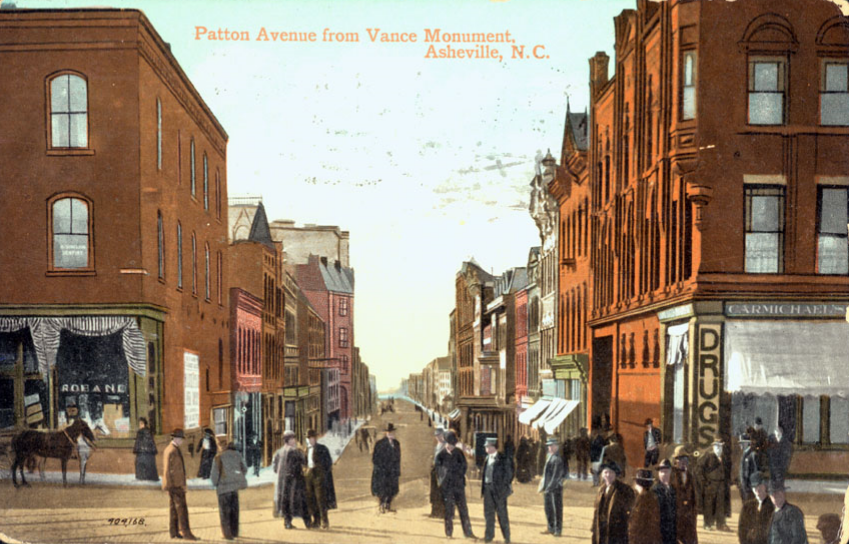The message was clear (and quite sexist). On May 6, 1909, The Asheville Citizen declared:
“All ye housewives and women of Asheville take notice. Tomorrow is the cleaning up day, so ordained by the city fathers who, after consideration, decided to follow the example of other cities and fix a day when every house and yard should be made clean and every room thoroughly overhauled.”
Morning wagons, the paper informed readers, would be out collecting overlooked and unwanted items, including carcasses! “Think of those dead cats that are hidden away somewhere on the premises,” the article stated. “Had you know it, certainly they would have been removed long ere this.”
And so began Asheville’s inaugural Clean-up Day, which subsequently became Clean-up Week.
By 1911, the paper reflected on the annual happening’s growing popularity among residents. “The people have for the past few years co-operated with the city officials in an effort to keep Asheville clean and attractive and it is believed that they will again co-operate this year,” The Asheville Citizen wrote on May 2.
Momentum and enthusiasm continued over subsequent years. “Don’t forget that next week is ‘clean-up week,’” The Asheville Gazette-News reminded readers on April 23, 1913. “Let’s make the old town shine like a kid just fixed for Sunday school.”
But hands down, the most enthusiastic response to the annual event arrived courtesy of Carl V. Reynolds, the city’s health officer. In 1914, he paid an official visit to Pennsylvania. While there, “Reynolds took advantage of an opportunity to visit the health department of Philadelphia in search for new ideas,” The Asheville Citizen reported on April 16, 1914.
Along with posters to advertise Clean-up Week, Reynolds walked away with a poem that he shared with local residents; a work that the paper reprinted in its April 16 edition. The six-stanza masterpiece included such lines as:
“Whitewash cellar, disinfect;
Every corner, please inspect.
What a lot of things need cleaning.
Surely you will get our meaning.
Sweep-up, spick and span.”
These actions, the poem concluded, would bring participants much satisfaction:
“After you are through with this,
Cheerful smiles are not amiss.
Don’t forget it through the year.
Every day make full of cheer.
Cheer-up, spick and span.”
But by 1915, not all residents remained as committed as local officials. On April 25, 1915, The Asheville Citizen informed readers that wagons would be making a second round, after Capt. W.H. Bird of the sanitation department received multiple calls from residents who failed to place their trash out on time.
“Many reasons were assigned for the failure of the residents of the different streets to comply with the request that the trash be placed on the curbing before the first day of the clean-up campaign,” the paper stated. “A number of citizens said that they had run out of barrels to hold their trash and asked that the remaining rubbish be sent for. Others said that they had discovered unsightly spots since the wagons passed their homes and wanted to improve their appearances before the boy scouts got after them.”
Even so, the paper touted Asheville’s progress since the 1909 launch of Clean-up Week. “The sanitary department [has] the hearty co-operation of the local board of trade, the civic league and the boy scouts in the campaign and support from numerous other sources,” the article stated. “Asheville today doubtless is cleaner than ever before.”
Editor’s note: Peculiarities of spelling and punctuation are preserved from original documents.






Before you comment
The comments section is here to provide a platform for civil dialogue on the issues we face together as a local community. Xpress is committed to offering this platform for all voices, but when the tone of the discussion gets nasty or strays off topic, we believe many people choose not to participate. Xpress editors are determined to moderate comments to ensure a constructive interchange is maintained. All comments judged not to be in keeping with the spirit of civil discourse will be removed and repeat violators will be banned. See here for our terms of service. Thank you for being part of this effort to promote respectful discussion.